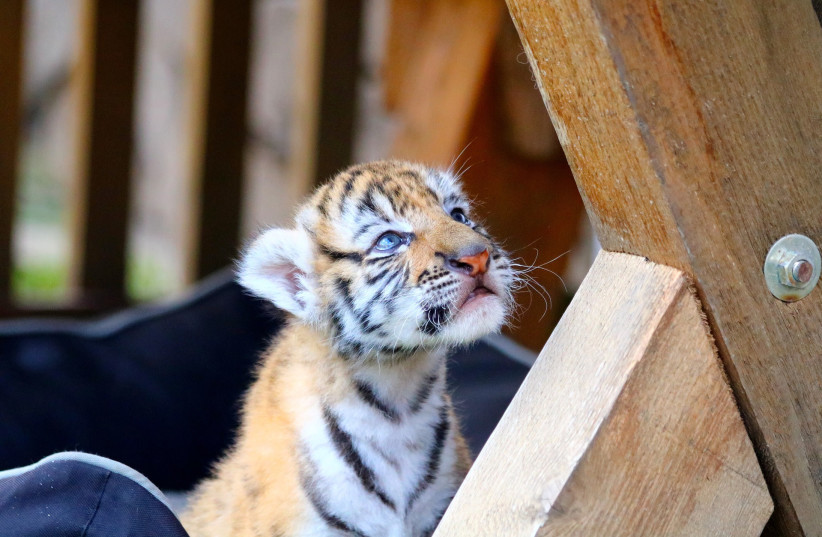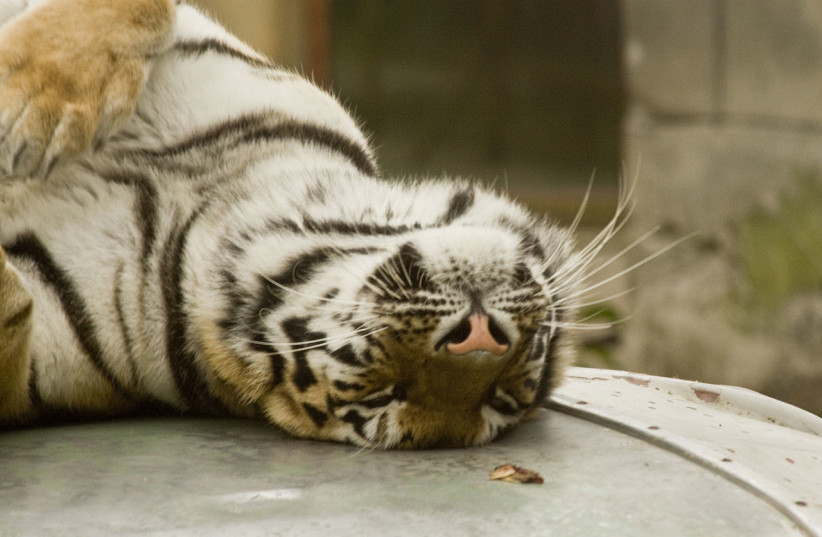Is there any depth and dimension to the personality of tigers, one of nature's most fearsome felines? According to a study published last week, the answer is yes – and these personality differences can impact their health and behavior.
The findings of this study were published in the peer-reviewed academic journal the Royal Society.
The study specifically focused on the Siberian tiger, also known as the Amur tiger – the single largest cat species on Earth. The study was conducted in 2022, which was made to coincide with the year of the tiger in the Chinese lunar calendar.
Do cats have personalities?
Anyone who has a cat or has spent enough time with them knows that cats have their own distinct personalities.
Most of this understanding comes from close proximity with domestic house cats, which are one of the most popular pets worldwide – and by and large, humans tend to love the unique quirks of their feline friends.

Overall, cats are seen experiencing a wide range of behaviors and personality traits, ranging from periods of playfulness and demanding attention from others to periods of being aloof, cold and seemingly unsympathetic.
Back in 2021, one study even created a feline personality test.
Earlier that same year, scientists from Finland identified seven key feline behavioral and personality traits.
But how does this translate to big cats out in the wild? After all, the larger felines of the Panthera genus likely exhibit their own unique behaviors and personalities due to a very different lifestyle compared to a house cat, but the study found they also differ among each other.
For example, some big cats like leopards and jaguars are very solitary. Leopards, for example, tend to stay one kilometer apart from one another in the wild, only occasionally interacting with mates and cubs while also sometimes clashing over territory.
By contrast, lions are incredibly social animals, living in close-knit groups known as prides.
But what about Siberian tigers?
For starters, these tigers are known to be somewhat solitary, though mothers do stay with their cubs for two-three years and fathers sometimes stick around for a bit too.
However, these tigers are also known to be incredibly sensitive to their environment and any changes made to it.
This is thought to be shaped by its need for survival and to reproduce in a very resource-scarce environment where it lives, which is Siberia.
But what is also interesting about Siberian tigers is that, as the largest type of cat, they also have the largest brain out of all cats, which makes sense, the study argues, since their survival and reproduction in their environment is very cognitively demanding.
With this in mind, the researchers sought to examine if these tigers have personalities. Specifically, they wanted to answer three questions:
- Is there a discernible personality structure?
- Is any personality trait linked to other factors such as social status or physical characteristics?
- Does this differ between the sexes?
To answer these questions, the researchers studied two different Siberian cat populations, one of 152 tigers and another of 95 tigers each in different sanctuaries.
The raters, all of whom were either veterinarians or feeders who have worked with these tigers before, assessed each tiger with a personality questionnaire. The researchers then studied how different people assessed the same tiger and examined differences based on evolutionary relevant outcomes and differences between sexes.

So what did they find out?
Overall, two defining personality traits were outlined, Majesty and Steadiness, though there was little in the way of sex differences.
Majesty in this case refers to being "dignified, imposing and ambitious," whereas Steadiness refers to "methodical, tolerant, sincere and frank."
Here, it became easy to note evolutionary differences between the two.
The tigers scoring higher in terms of Majesty saw a lot of advantages. They were healthier; preyed more on live animals and ate more; mated more often; and were seen by raters as having higher social standing.
Notably, these are also all things seen in humans as desirable personality traits.
Could any outside factors cause this?
The researchers aren't sure, but they did note that there could possibly be a link between being reared by humans versus being reared by their mothers at early ages, with the latter possibly being linked to Majesty.
The only sex difference present was that males were sometimes heavier.
The overall conclusion though was that, at the end of the day, tigers, as is the case with other cats, are unique individuals, just as humans are.
Could the results have been different in the wild? Possibly, but given the extremely low number of critically endangered Siberian tigers in the wild, that study would be next to impossible.
Future studies could shed more light on this, assuming there are enough Siberian tigers left.
